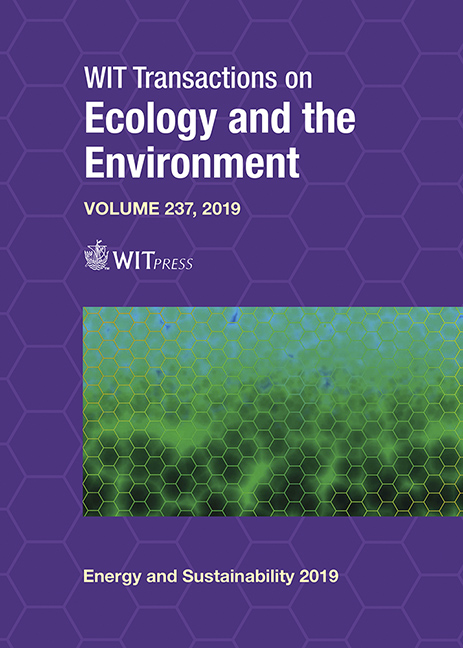PRODUCTION OF ANTIOXIDANTS FOR BIODIESEL FROM STRAW BLACK LIQUOR DEPOLYMERIZATION
Price
Free (open access)
Transaction
Volume
237
Pages
12
Page Range
97 - 108
Published
2019
Size
697 kb
Paper DOI
10.2495/ESUS190091
Copyright
WIT Press
Author(s)
JOSÉ PALOMO, SAMUEL MOLES, JESÚS SALAFRANCA, NOEMI GIL-LALAGUNA, ALBERTO GONZALO, JOSÉ LUIS SÁNCHEZ
Abstract
Black liquor produced from semi-chemical pulping of barley straw has been depolymerized at different temperatures (250 to 325°C), times (1 to 3 h) and initial solids content in the black liquor (7 to 14%). The obtained degraded and soluble lignin was then used as biodiesel stabilizer (against oxidation). The depolymerization products have been analyzed by gel permeation chromatography, gas chromatography-mass spectrometry (GC-MS), Fourier-transform infrared spectroscopy (FTIR), and phenolic content was quantified by using the Folin–Ciocalteu method. Regarding the molecular weight distribution, temperature and time have been the most influential factors, especially temperature, which decreased the observed molecular weight. The presence of volatile phenolic compounds has been determined by GC-MS. Temperature was found to be the most influential factor: the higher the temperature, the lower the concentration of volatile phenolics. Regarding the FTIR, the measured spectra hardly change when modifying the experimental conditions. Oxidation stability of biodiesel increased with the reaction temperature applied to black liquor, suggesting that the increase of oxidation stability is not only caused by the volatile phenolic compounds.
Keywords
black liquor, lignin, biodiesel, oxidation, additives





